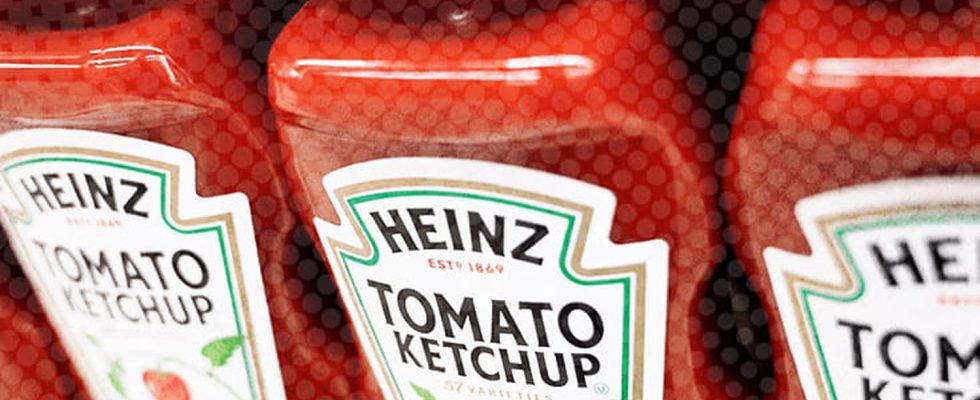Are you storing your ketchup properly?
When it comes time to gather the ingredients for an outdoor picnic, we turn to basic condiments, ketchup and mustard. Where do we put this classic condiment when the meal is over? In the fridge or in the kitchen cupboard?
Ketchup is a very popular condiment across the world, and it is widely used in many homes. In France, although mayonnaise and mustard are traditionally more popular, ketchup is also commonly used, especially with dishes like fries and certain types of meat. But it seems these households disagree on how to store it. So this week, Heinz UK’s Twitter account tweeted the company’s recommendation on where this tomato-based condiment should be stored to finally settle the debate.
Most condiments available for purchase in supermarkets are treated to be shelf stable, which means that the product can remain on the shelves for long periods of time without spoiling. Some stable condiments can stay in the cupboard for a few months after opening, while others are clearly marked “refrigerate after opening.”
Why do some condiments need to be refrigerated?
Refrigeration can be an important factor in the storage process to extend shelf life and product quality. This includes food color, flavor and texture. Food safety organizations say stable products like mustard, mayonnaise, barbecue sauce, ketchup, soy sauce and teriyaki sauce will benefit from refrigerated storage. “Refrigeration ensures that commercial sauces and condiments stay fresh for a longer period of time.”
In addition to these guidelines, you should always be on the lookout for any signs of deterioration before each use. Let’s be honest, most of us keep things longer than the guidelines suggest.
Heinz settles the debate on how to store ketchup
Heinz recently shared its statement on the ketchup storage controversy: The company asked its social media followers to vote on whether they keep their ketchup in their refrigerators or on a shelf in the kitchen cupboard. food.
After reviewing the more than 2,500 votes, the responses revealed that those who answered were almost exactly split in half. “There was only one correct answer, and we’re happy to share with Heinz Tomato Ketchup lovers that our ketchup must be in the fridge,” said Olivia Lennon, at Heinz Tomato.
“While we realize that many Heinz Tomato Ketchup fans have stored their ketchup in the cupboard, we recommend refrigeration after opening,” she said. “It’s the best way to maintain the deliciously tangy taste of our Heinz Tomato Ketchup that you know and love.” Heinz bottle labels clearly state, “For best results, refrigerate after opening.”
“Due to its natural acidity, Heinz ketchup is shelf stable,” the brand said. This explains why the product is not found in the refrigerated section of your grocery store. However, the brand maintained that consumers should “refrigerate after opening to maintain product quality.”
Why is restaurant ketchup stored at room temperature?
A Tweet raised the point that ketchup bottles are found on (unrefrigerated) tables at our favorite restaurants all the time. “It’s not in the fridge in restaurants (open containers are on the tables),” one user said.
The turnover rate in a restaurant is much faster than what happens in a home kitchen, so it doesn’t end up sitting out long enough to lose quality. A bottle of ketchup can take a month to use at home, whereas most restaurant ketchup bottles are refilled daily.
